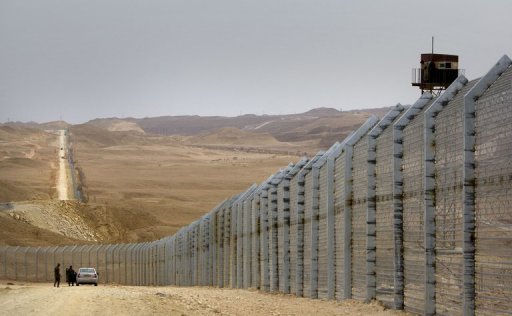CAIRO: The dismal chapter in the life of Omaima, a 27-year-old from Qaliubiya, started when she signed checks on behalf of her elderly father. Her sister was getting married, and her father was buying furniture for the apartment.
Little did Omaima know, her helping hand would ultimately land her in prison.
A few months later, her father fell ill and had to stop working. He could no longer afford the monthly installment of LE 500. The entire family’s income went to paying for his medical expenses.
After he passed away, Omaima defaulted on the payments month after month, leading the creditors to file a lawsuit. She was sentenced to three and a half years in prison, leaving behind her four-year-old daughter. And just as she was about to start her sentence she found out that she was pregnant again.
Luckily, things took a turn for the better. The Female Inmates’ Children Society – which has been operating for 17 years – took on Omaima’s case.
The society’s founder Nawal Mostafa – editor-in-chief of Kitab El Youm, published by Akhbar El Youm – brought the issue to the forefront by appearing on Rola Kharsa’s popular television program with the same name.
As soon as the program aired, Mostafa’s telephone was ringing off the hook, with people asking how they can help Omaima and offering donations.
Before the end of her first six months in prison, Omaima was released.
This is only one of the society s success stories, which, since its inception, has left no stone unturned in researching each case it believes is worthy of a helping hand.
“To me every woman in jail is a special case, particularly when she is a mother, Mostafa told Daily News Egypt. “As an inmate, the mother isn’t only robbed of her freedom; her family falls apart in the absence of its real protector and caretaker.
“The situation is not any better for single women or women with no children because following their release, they all have to deal with the stigma of being an ex-convict. This is enough to make her feel isolated in a society that shows no sympathy for these women.
But according to Mostafa, the worst dilemma a female inmate can face is giving birth and raising a child in jail.
“In the prime of their innocence these kids are raised in a place that doesn’t even know the meaning of innocence. This society was created to address the needs of these young victims and help their mothers stay out of prison.
By law, the children are entitled to remain in their mother’s custody until the age of two. If at that time no relatives claim custody, the child is placed in an orphanage until the mother completes her jail sentence, Mostafa explained.
Her first encounter with the children of inmates transpired two decades ago when she went to the women’s jail in Qanater to report on the prisoners. There she saw children running around the premises and was told those were the inmates’ kids.
As she probed into the matter, she discovered the reality of the poor living conditions: The children suffer from malnutrition and other diseases as well as psychological and emotional traumas as a result of living in these gloomy, and often dangerous, surroundings.
Her research also revealed that there was no budget allocated to the care of the children and that this financial burden fell on the mother. She searched for specialized organizations that help these children but found none.
That was when she launched an extensive media campaign with the aim of raising public awareness of the issue. The readers of Al-Akhbar proposed establishing a society to help these women and their children.
“I took the issue personally and felt obligated to establish this society, said Mostafa.
A visit to the society’s office in Giza was an eye-opener.
Adel Talaat, executive director, said, “We receive cash and in-kind donations. We then visit Qanater Prison and supply them with medicine, clothes, toys, educational material and food, especially children’s milk. We also issue postal drafts to inmates who need money.
“Most of these women come from impoverished background and even the drive to Qanater could be too expensive for their families, Talaat added.
A former inmate who goes by the name Fathia Gomaa sought the society’s help.
“To me, life in jail was much better, Gomaa said, “I was sentenced to five years in jail on charges of theft. My husband died as I was serving my jail sentence and we were evicted by our landlord. After I was released last Ramadan I went to stay with my family, but they disowned me and asked me to leave immediately. My brother beat me and threatened to kill me if I ever went back. My mother said my staying with them would stigmatize my siblings who will get married soon.
“I learned to knit while in jail but it’s difficult to work and make a living. I can’t find a place to stay. Until I find a home, I have to report to the police station every evening, spend the night in a cell and leave at dawn.
“I can only be relieved of this duty – which all released inmates have to abide by for five years – if I get my own residence because then the police can keep track of my whereabouts. Renting a place would be too costly, Gomaa said.
Mostafa is publicizing the society’s noble cause through a monthly Arabic magazine launched this year called Ouyoun El Mustakbal (Eyes of the Future). There are also plans to set up new factories and other projects to create job opportunities for former inmates. Another of the society’s plans is to launch projects that can develop their skills after they are released.
“We have never deviated from our main goal, which is helping the children living behind bars, stressed Mostafa. “We doubled our efforts to protect them against the effects of growing up in jail. We are also negotiating to set up a kindergarten within the prison and build a model house for the children, who more often than not are prone to delinquency once they are given over to the care of a relative, she added.
Mostafa aspires to expand the society’s work to all women’s prisons in the country. For the time being, the Qanater jail is their focus because it holds the highest number of female inmates with children.inmates with children.


